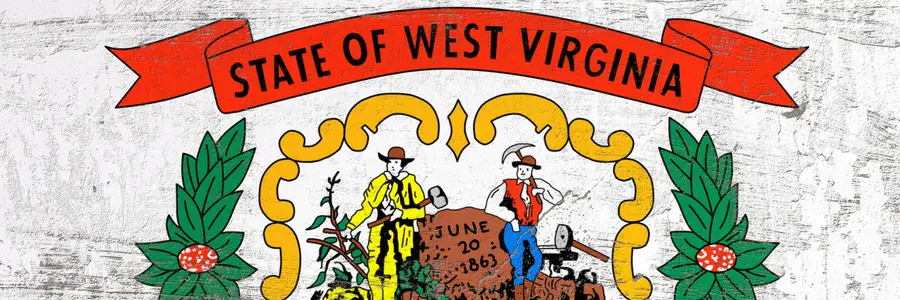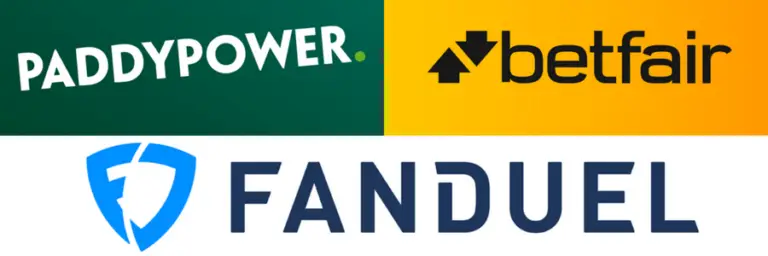West Virginia Online Gambling Industry Off To A Strong Start

When you think of success stories in the US online casino industry, the state of West Virginia is unlikely to come to mind. There are only four active online casino markets in the US, and it’s a case of the haves and have nots. Two are the much-ballyhooed, well-populated Pennsylvania and New Jersey markets. The other two are the sparsely populated and primarily overlooked Delaware and West Virginia.
the New Jersey online casino industry is a juggernaut, as Pennsylvania performs its best impression of DK Metcalf as the much newer market tries to overtake the Garden State. On the other hand, Delaware is a market as old as New Jersey but has proven to be a dud, and West Virginia, another small state, is new to the scene, having launched in July 2020.
But don’t sleep on West Virginia. It’s no Delaware.
Quite interestingly, the West Virginia online casino market is growing at a New Jersey like rate and has had the most success out of the gate when adjusted for population.


Coming Back Down to Earth
West Virginia is outpacing New Jersey and Pennsylvania in terms of spend by population in the first four months since launch. However, it still has a long way to go to reach current Pennsylvania and New Jersey levels.
In October, online casino spend by population in Pennsylvania was $5.57, while New Jersey’s spend by population was an astronomical $10.24, more than 8.5-times what West Virginia is currently generating.
Furthermore, West Virginia’s early success is getting a big assist from the COVID-19 factor. The state’s online casino industry launched in the middle of a pandemic that has pushed quite a bit of commerce and spend online.
And considering its structural limitations, West Virginia’s online casino industry is likely to have a lower ceiling and mature far quicker than New Jersey or Pennsylvania.
Those limitations include:
- the state’s small, declining population of around 1.7 million residents;
- its lack of a tourism industry or large border populations in neighboring states;
- being in the bottom 25 in terms of unemployment rates (8.6%);
- having the lowest household income in the US ($44,097); and
- a hard cap on the number of online operators (more on this in a moment).
Which Online Gambling Sites Are Operational in West Virginia
As noted above, West Virginia limits the number of online gambling operators by law, with each of the state’s five casinos authorized to launch three online gambling brands. However, it’s unlikely the state will have anywhere close to 15 online casino operators at any point.
the state currently has five online sports betting operators:
- FanDuel West Virginia
- DraftKings West Virginia
- BetMGM West Virginia
- Caesars Sportsbook West Virginia
- Betly West Virginia
Presently, the Mountaineer State has just two online casino operators, BetMGM and DraftKings.
I can envision each land-based casino possessing a single online casino operator and possibly one or two casinos with multiple brands down the road. I wouldn’t expect an overly crowded market like New Jersey, as the population and economic conditions in the Mountaineer State simply can’t support a robust market with dozens of operators.
The Importance of West Virginia
What West Virginia can do is demonstrate to smaller states the potential value of legalizing online casino betting. As it’s clearly showing, it’s not just well-populated states that can benefit from legalizing. States don’t need to have billion-dollar potential like New Jersey, Pennsylvania, and Michigan to benefit from legalized online gambling.
West Virginia’s success dispels the myth that small states will end up like Delaware.
First, it shows that even sparsely populated states can generate tax revenue from a West Virginia-like 15% tax rate. Second, it allows them to charge a loftier licensing fee than the $250,000 West Virginia is charging operators.
Five online licenses at $1 million apiece would generate a quick $5 million. And even a small $60 million market taxed at 15% would result in another $9 million in tax revenue annually. And there’s no reason to believe that $60 million is the ceiling.
For states like North Dakota, Vermont, New Hampshire, and Nebraska, that’s meaningful revenue.






